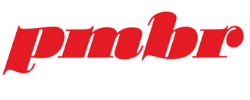
What is the MBE?
Share
What is the Multistate Bar Exam (MBE)?
The MBE, or Multistate Bar Exam, is a component of the UBE Uniform Bar Exam (UBE) designed to test your ability to apply fundamental legal principles and legal reasoning to analyze given fact patterns. The MBE is a six-hour, 200-question multiple-choice examination offered only twice per year: on the last Wednesday in February and the last Wednesday in July. While the exam is developed by the National Conference of Bar Examiners (NCBE), each jurisdiction has its own policy regarding the relative weight given to the MBE and other UBE scores. In this guide, we review what you need to know about the MBE so you feel confident and prepared for exam day.
The MBE’s Importance
The MBE is a critical component of the bar exam and is often considered the most difficult part of the bar to pass. For test-takers in many jurisdictions, the MBE comprises as much as 50% of their total bar exam score, which is why studying for the MBE is essential to your success on the bar. Furthermore, some states accept the transfer of MBE scores from other jurisdictions, so those who wish to obtain law licenses in multiple states do not have to sit for another full examination. It’s important to note that passing this exam does not mean you are able to practice law in all 50 states, the MBE, while important, is just one component of the bar. In addition, Louisiana and Puerto are the only two jurisdictions in the U.S. that have not adopted the MBE.
Test Subjects: What’s Tested on the MBE?
There are seven subject areas tested on the MBE: Civil Procedure, Constitutional Law, Contracts, Criminal Law and Procedure, Evidence, Real Property, and Torts. In the table below, we break down exactly what is tested on the MBE.
| Civil Procedure | Jurisdiction and venue, law applied by federal courts, pretrial procedures, jury trials, motions, verdicts and judgments & appealability and review |
| Constitutional Law | The nature of judicial review, the separation of powers, the relation of nations and states in the federal system &, individual rights |
| Contracts | Formation of contracts, defenses to enforceability, contract content and meaning, performance, breach, and discharge, remedies & third-party rights |
| Criminal Law and Procedure | Homicide, other crimes, inchoate crimes; parties, general principles & constitutional protection of accused persons |
| Evidence | Presentation of evidence, relevancy and reasons for excluding relevant evidence, privileges and other policy exclusions, writings, recordings, and photographs & hearsay and circumstances of its admissibility |
| Real Property | Ownership of real property, rights in real property, real estate contracts, mortgages/security devices & titles |
| Torts | Intentional torts, negligence, strict liability and products liability & other torts |
Test Format: What does the MBE look like?
The MBE is divided into a 3-hour morning session and a 3-hour afternoon testing session, with 100 questions administered in each session. There are 175 scored questions and 25 unscored pretest questions. The pretest questions are indistinguishable from those that are scored, so test-takers should answer all questions to the best of their ability.
The 175 scored questions on the MBE are distributed evenly, with 25 questions from each of the seven subject areas detailed above. All answers are marked on an answer sheet, with one answer for each question. MBE test-takers will only receive credit only for answers marked on the official answer sheet. Once time is called by the proctor, test-takers must put down their pencils - no more marks are allowed.
How to Register for the MBE
Here is the step-by-step process to register for the MBE:
- Create an NCBE account, if you haven’t already done so.
- Obtain an NCBE Number which will be tied to your NCBE Account (you will keep the same number for life).
- Register with the jurisdiction where you plan to take the MBE.
- Select your exam day and pay any exam fees.
MBE Test Dates & Eligibility
Remember: the MBE is only offered twice per year. In 2024, the two MBE exam dates are February 28, 2024 and July 31, 2024. Eligibility for the MBE is left to each jurisdiction's discretion. Most states require test-takers to have a Bachelor’s degree, but other common requirements include credit hours and character and fitness determinations. Contact your state's board of examiners for the most up-to-date information about MBE eligibility requirements.
MBE Scoring: What is a Passing Score?
There are 175 scored questions on the MBE, and each question is worth one point. Your unscaled score is then put in a range between 0 and 200. Each year, scores are further modified by the NCBE to account for test difficulty across MBE administration. Therefore, an average score on the MBE is between 140-145, but a scaled score of 150 or higher is considered a good MBE score. A “perfect” score on the MBE would be the top score of 200. According to the NCBE, the national mean scaled score for the July 2023 MBE was 140.5.
MBE Passing Score by State in 2024
- Alabama: 130
- Alaska: 140
- Arizona: 136.5
- Arkansas: 135
- California: 139
- Colorado: 138
- Connecticut: 133
- Delaware: 145
- District of Columbia: 133
- Florida: 136
- Georgia: 135
- Hawaii: 134
- Idaho: 136
- Illinois: 133
- Indiana: 132
- Iowa: 133
- Kansas: 133
- Kentucky: 133
- Maine: 135
- Maryland: 133
- Massachusetts: 135
- Michigan: 135
- Minnesota: 130
- Mississippi: 132
- Missouri: 130
- Montana: 133
- Nebraska: 135
- Nevada: 138
- New Hampshire: 135
- New Jersey: 133
- New Mexico: 130
- New York: 133
- North Carolina: 135
- North Dakota: 130
- Ohio: 135
- Oklahoma: 132
- Oregon: 135
- Pennsylvania: 136
- Rhode Island: 135
- South Carolina: 133
- South Dakota: 133
- Tennessee: 135
- Texas: 135
- Utah: 135
- Vermont: 135
- Virginia: 140
- Washington: 135
- West Virginia: 135
- Wisconsin: 129
- Wyoming: 135
How to Study and Prepare for the MBE
MBE prep may be the single most important thing you can do to maximize your chances for success on the bar exam. Here are some resources we recommend when studying for the MBE:
- Take an online MBE prep course. PMBR offers question-based and content-based review to help you prepare to pass the MBE on the first try.
- Practice with realistic, full-length MBE practice tests and subject-based quizzes. Each PMBR course comes with resources like practice tests or quizzes to enhance your studies so there are no surprises on test day.
- Review, retain, and learn to apply important legal concepts with our MBE Qbanks, featuring up to two thousand exam-like questions.
Learn more about how to prepare for the MBE.
Master these topics before the bar
Make MBE Prep part of your bar prep program:


